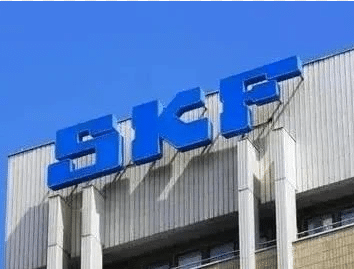
Introduction:
The quality of bearings is a fundamental aspect that directly impacts the performance, longevity, and reliability of machinery in various industrial applications. NSK and SKF, two renowned bearing manufacturers, are globally recognized for their commitment to engineering precision and quality. In this in-depth comparison, we will explore the quality of NSK bearings versus SKF bearings, highlighting the factors that differentiate them and their significance in industrial applications.
Understanding Bearing Quality:
Bearing quality encompasses multiple aspects, including material selection, manufacturing processes, precision engineering, durability, and performance under various conditions. The quality of bearings is a critical factor that determines their reliability and lifespan.
NSK Bearings:
NSK has established a reputation for producing high-quality bearings, and several key factors contribute to their outstanding quality:
Material Excellence: NSK uses premium materials that are chosen to enhance the bearing’s durability, resistance to wear, and longevity. These materials are carefully selected to meet specific application requirements.
Precision Engineering: NSK’s precision engineering and manufacturing processes result in bearings with minimal variations in dimensions and tight tolerances, ensuring consistent and reliable performance.
Quality Control: NSK implements stringent quality control measures throughout the production process, including thorough inspections, testing, and validation to ensure that each bearing meets their high-quality standards.
Advanced Lubrication Solutions: NSK offers advanced lubrication options tailored to the specific requirements of different applications, optimizing the bearing’s performance and lifespan.
Customization for Specific Needs: NSK provides customization options, allowing bearings to be tailored for unique application demands, further enhancing the overall quality.
SKF Bearings:
SKF is renowned for its unwavering commitment to bearing quality, and several distinctive features set their bearings apart:
Material Excellence: SKF employs high-quality materials, carefully chosen to improve bearing durability, resistance to wear, and overall lifespan. The material selection is adapted to meet the requirements of specific applications.
Precision Engineering: SKF’s precision engineering and manufacturing processes produce bearings with minimal dimensional variations and tight tolerances, ensuring consistent and dependable performance.
Quality Control: SKF maintains a rigorous quality control process that includes extensive inspections, testing, and validation to guarantee that each bearing meets the highest quality standards.
Advanced Lubrication Solutions: SKF provides a range of advanced lubrication options, designed to optimize bearing performance and lifespan for specific applications.
Customization for Specific Needs: SKF offers customization options to ensure that bearings are tailored to unique application requirements, further enhancing overall quality.
Conclusion:
Quality is a paramount consideration in industries where machinery performance and reliability are critical. Both NSK and SKF are esteemed manufacturers, and each excels in producing high-quality bearings that meet the demanding requirements of various applications.
NSK’s quality is reflected in their material excellence, precision engineering, rigorous quality control, advanced lubrication solutions, and customization options, making their bearings a top choice for applications where quality is a primary concern.
Similarly, SKF’s unwavering commitment to quality is evident through their material excellence, precision engineering, stringent quality control, advanced lubrication solutions, and customization options, ensuring their bearings meet the highest standards of quality.
The choice between NSK and SKF bearings ultimately depends on the specific requirements of the application. Factors such as load conditions, operating environments, and customization needs should be carefully considered to make an informed decision that optimizes the quality and reliability of the machinery.
